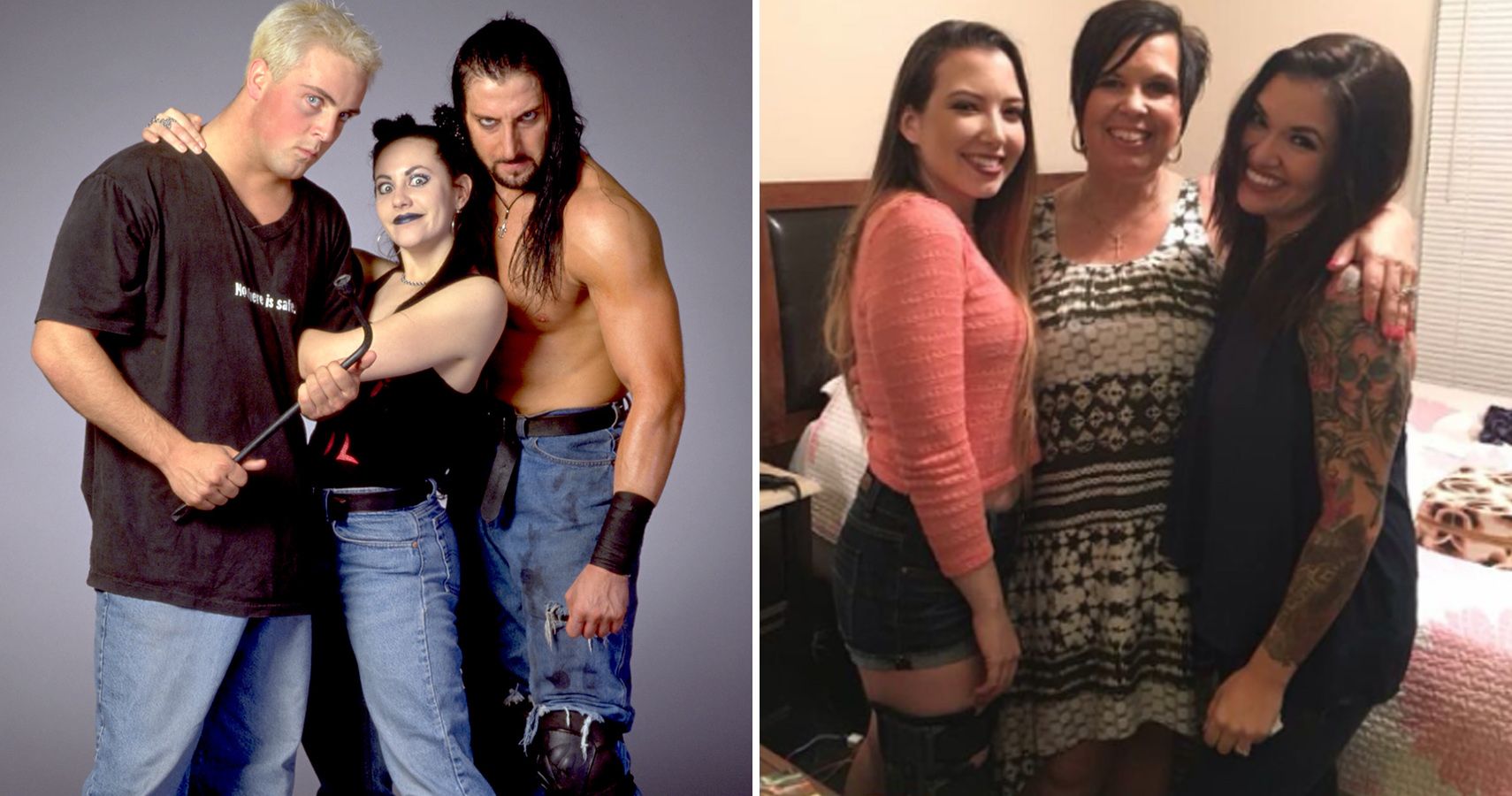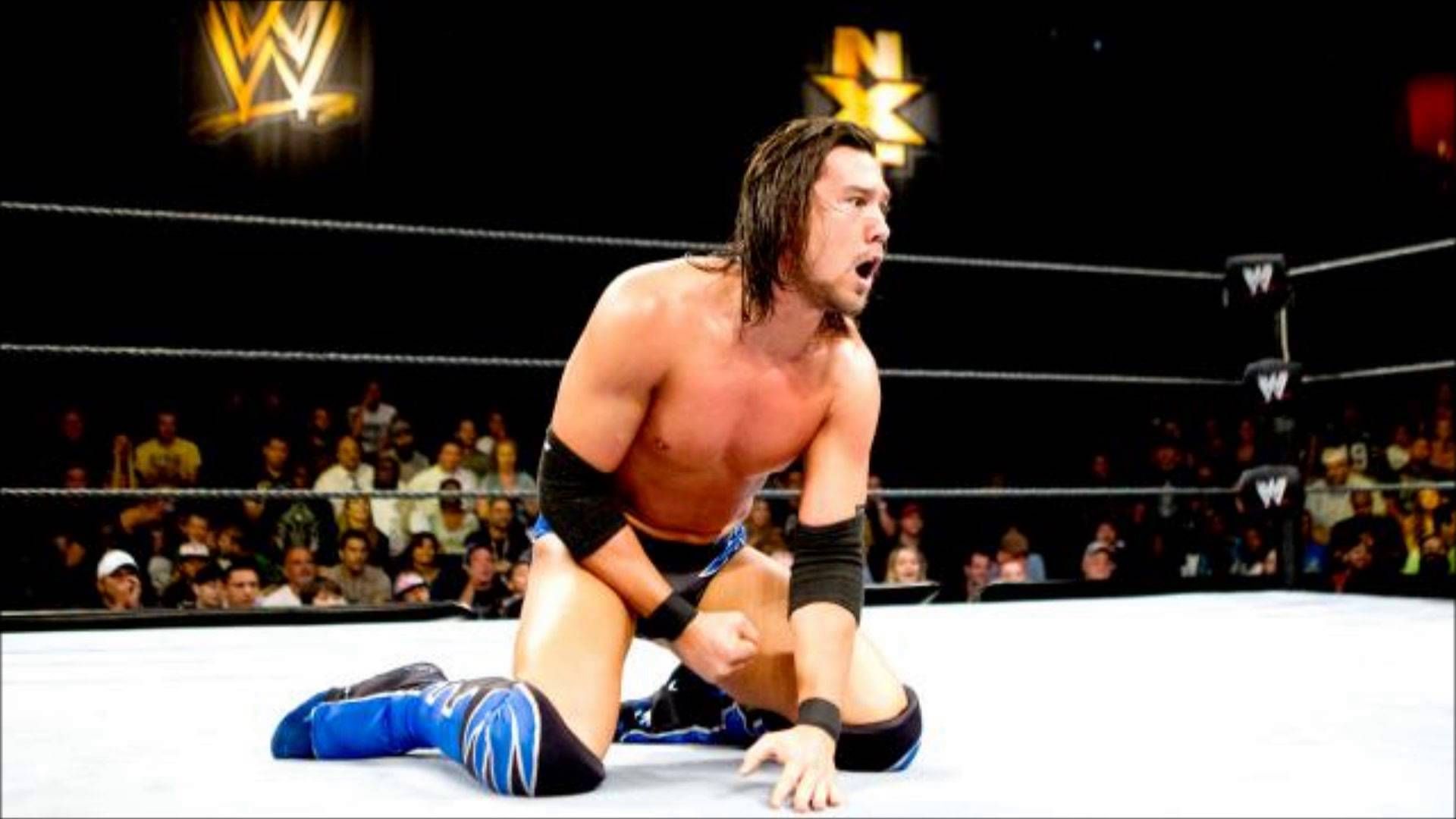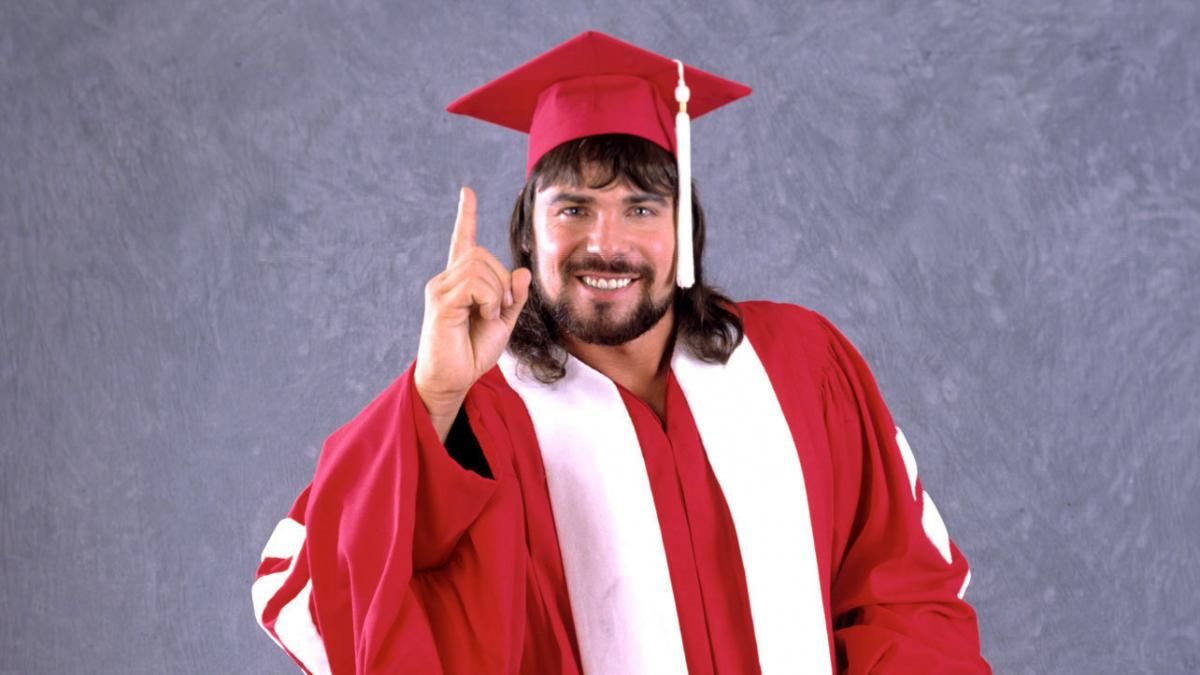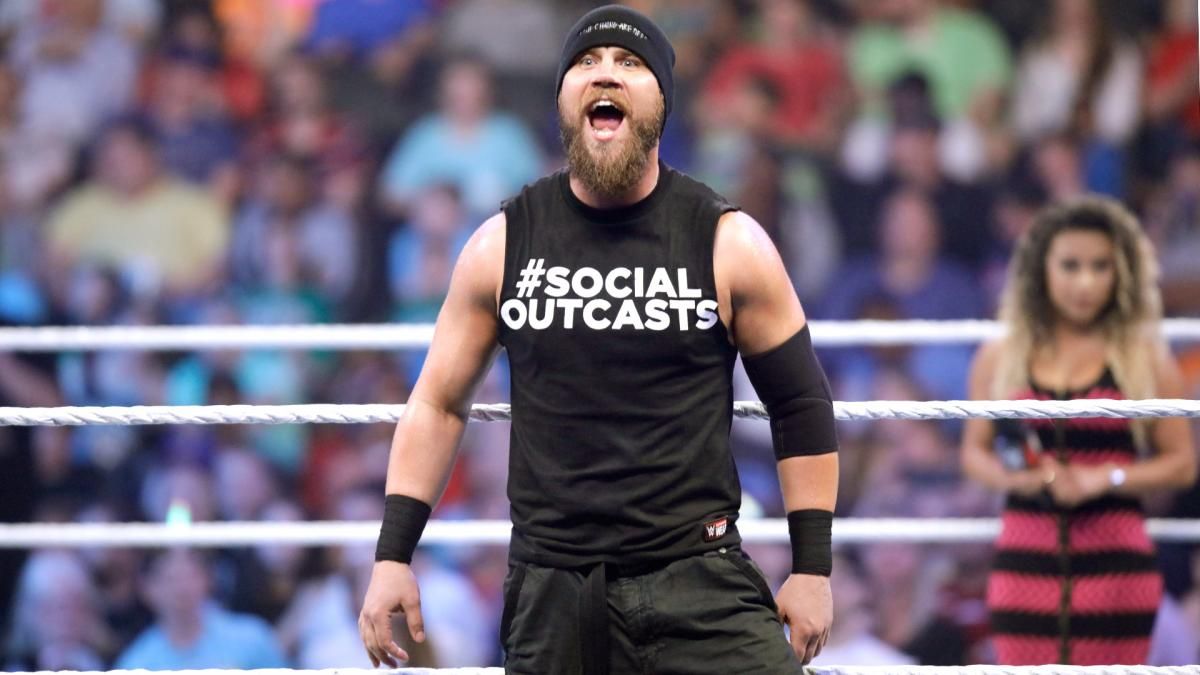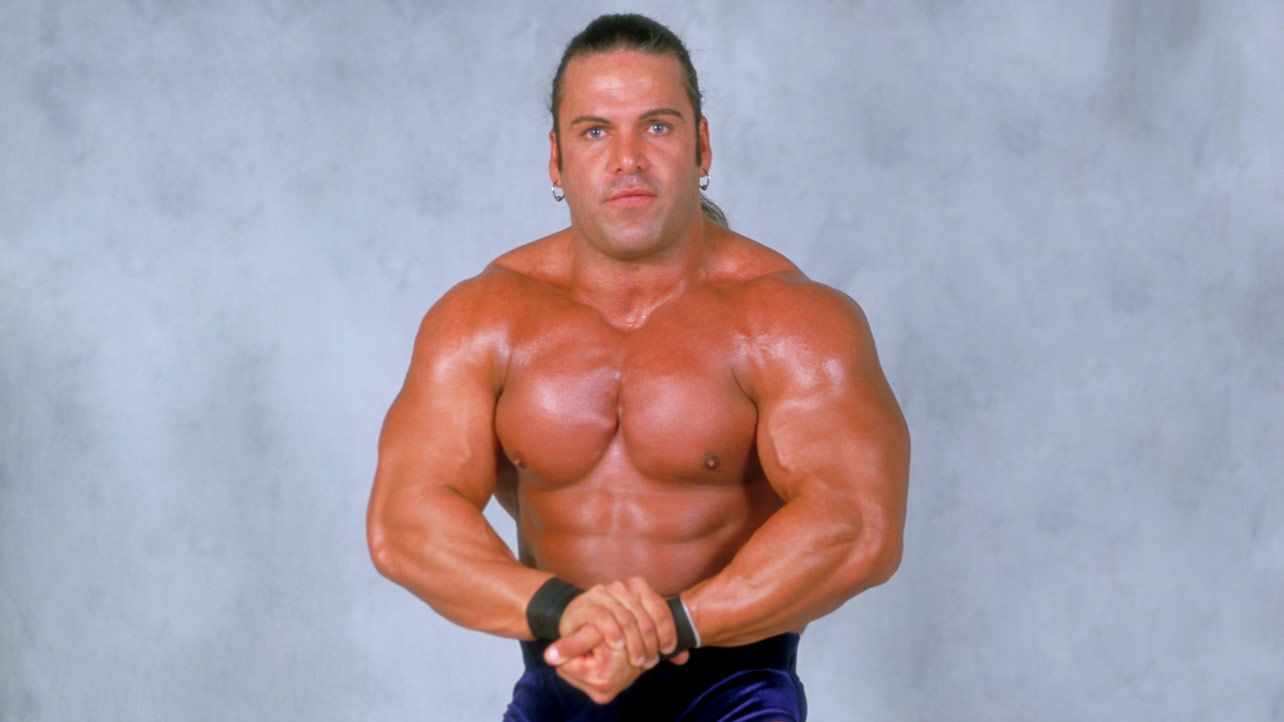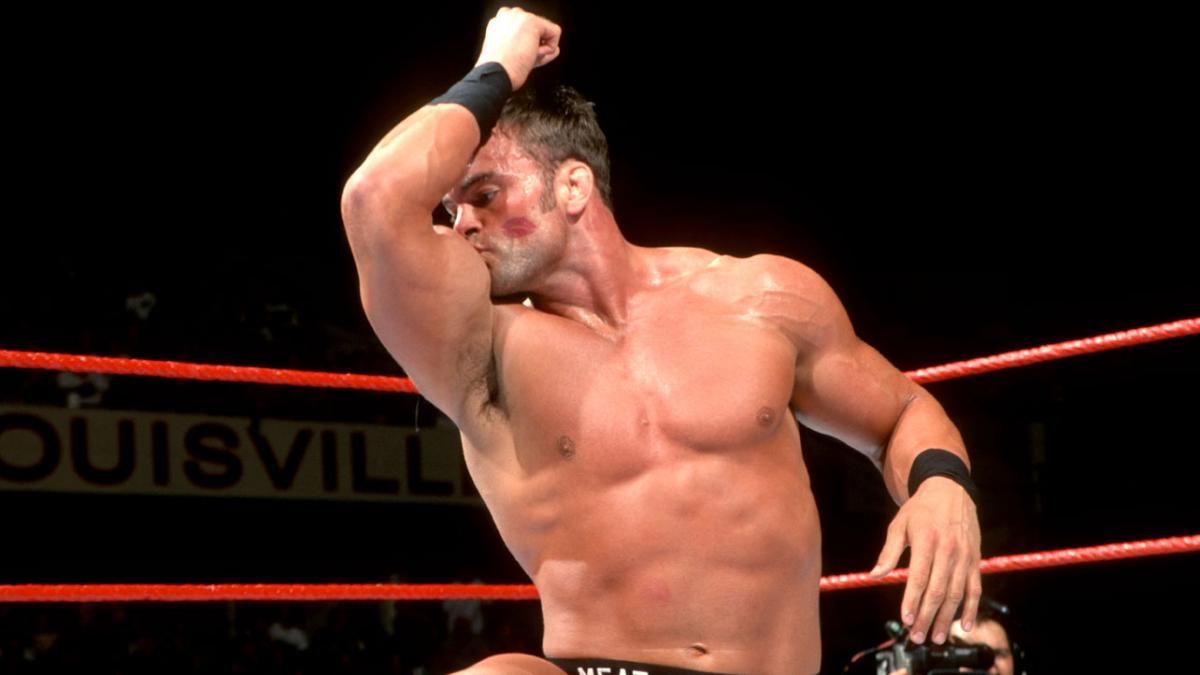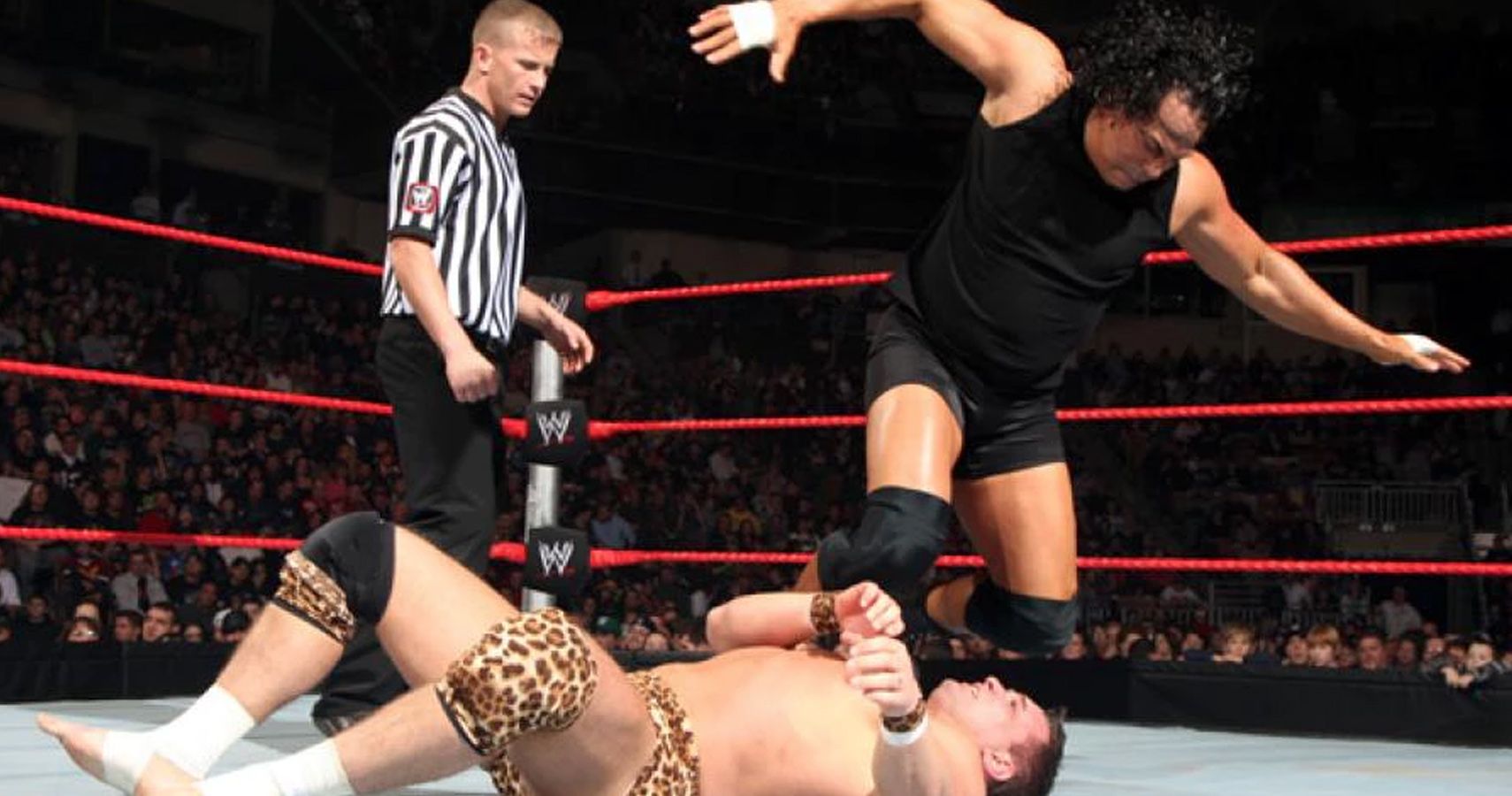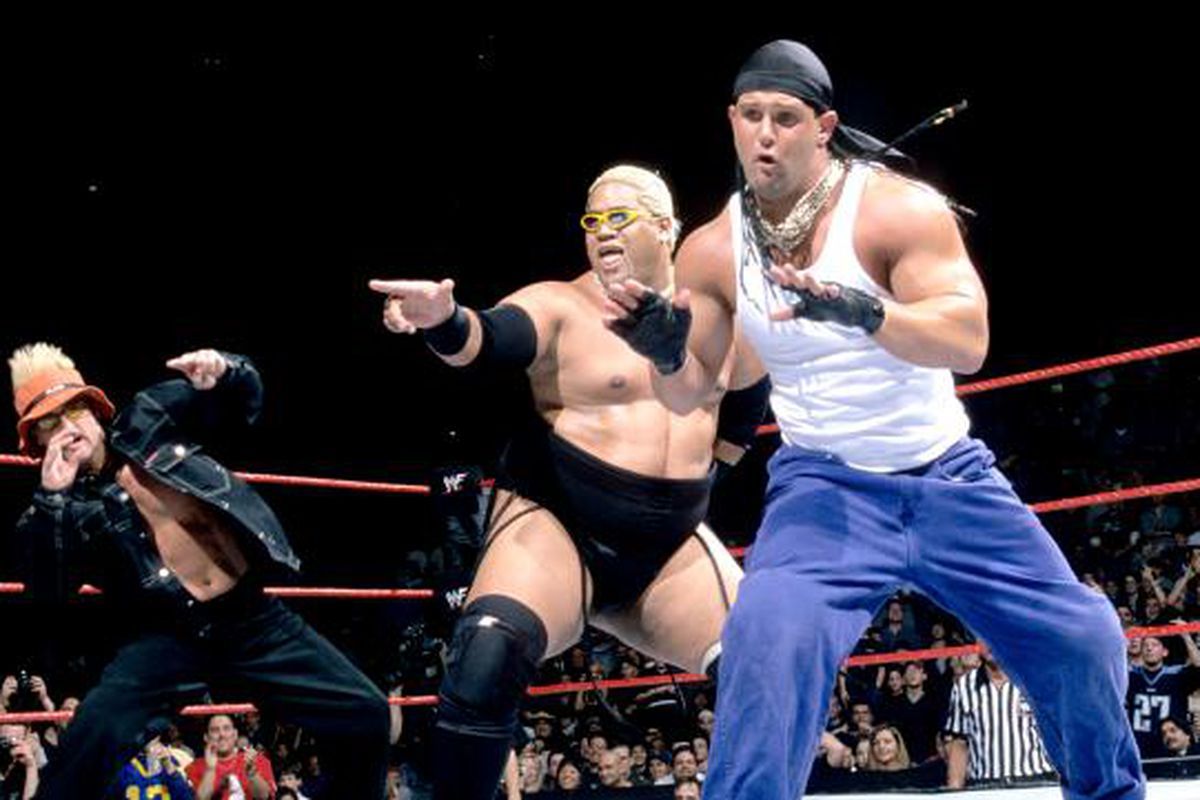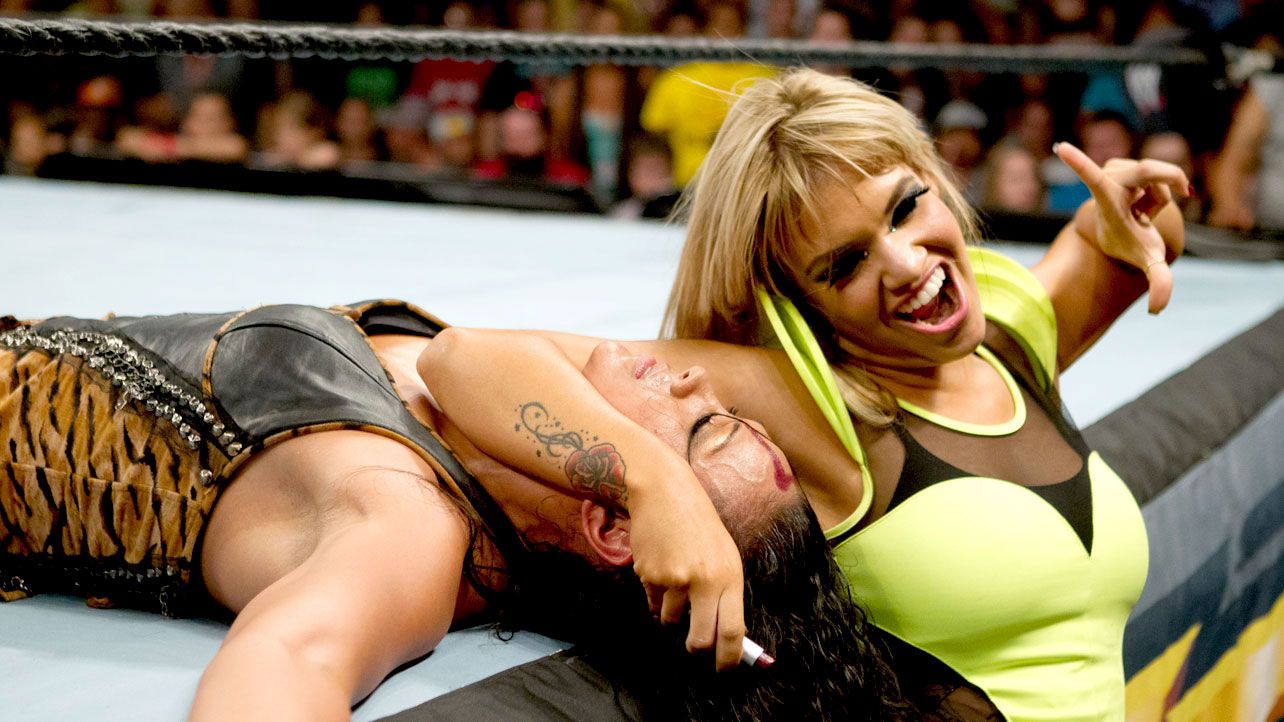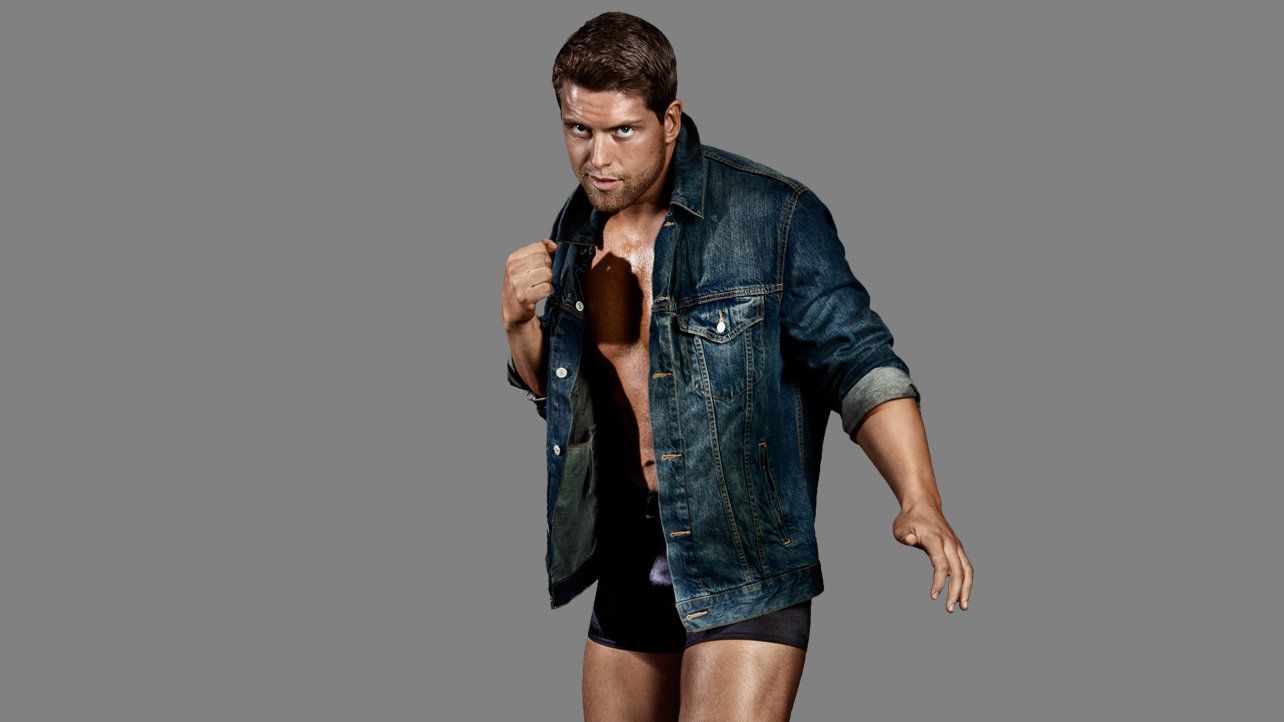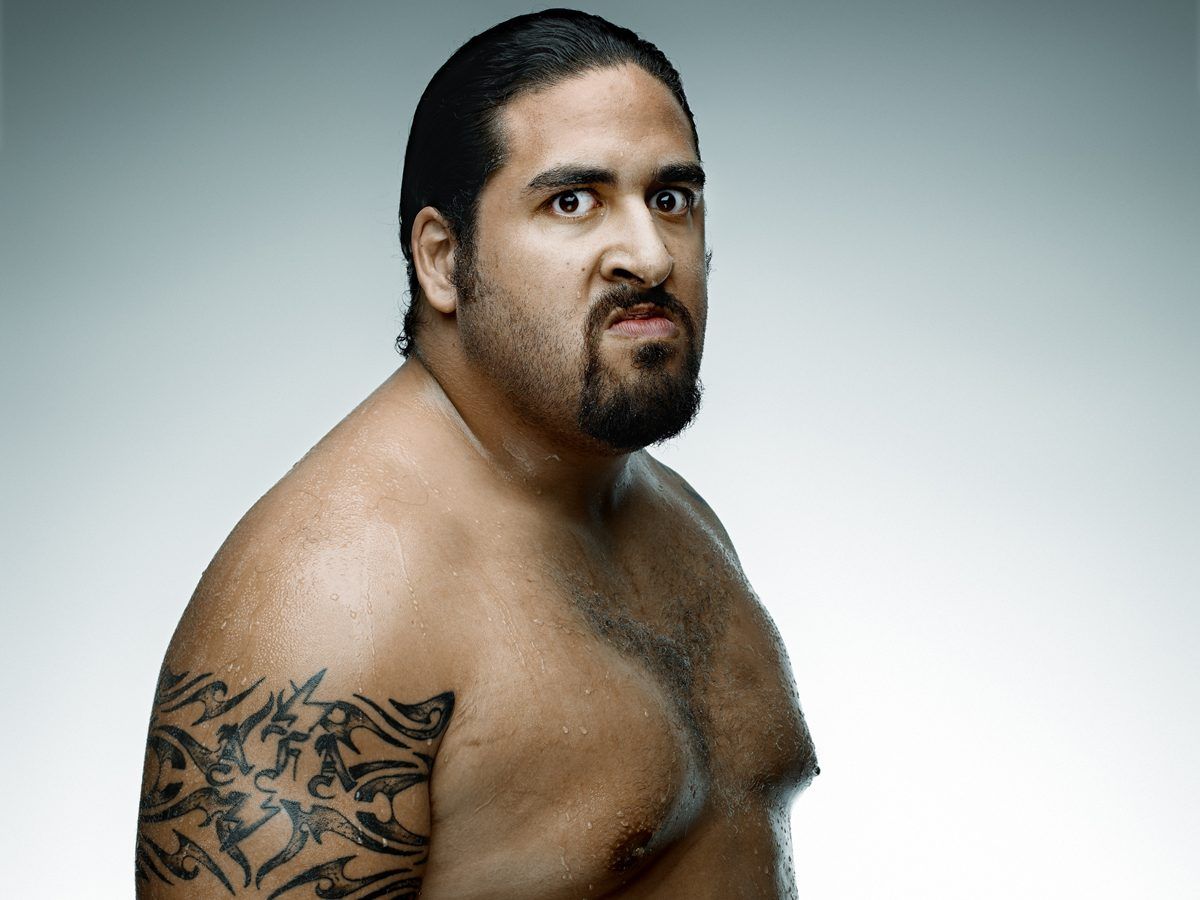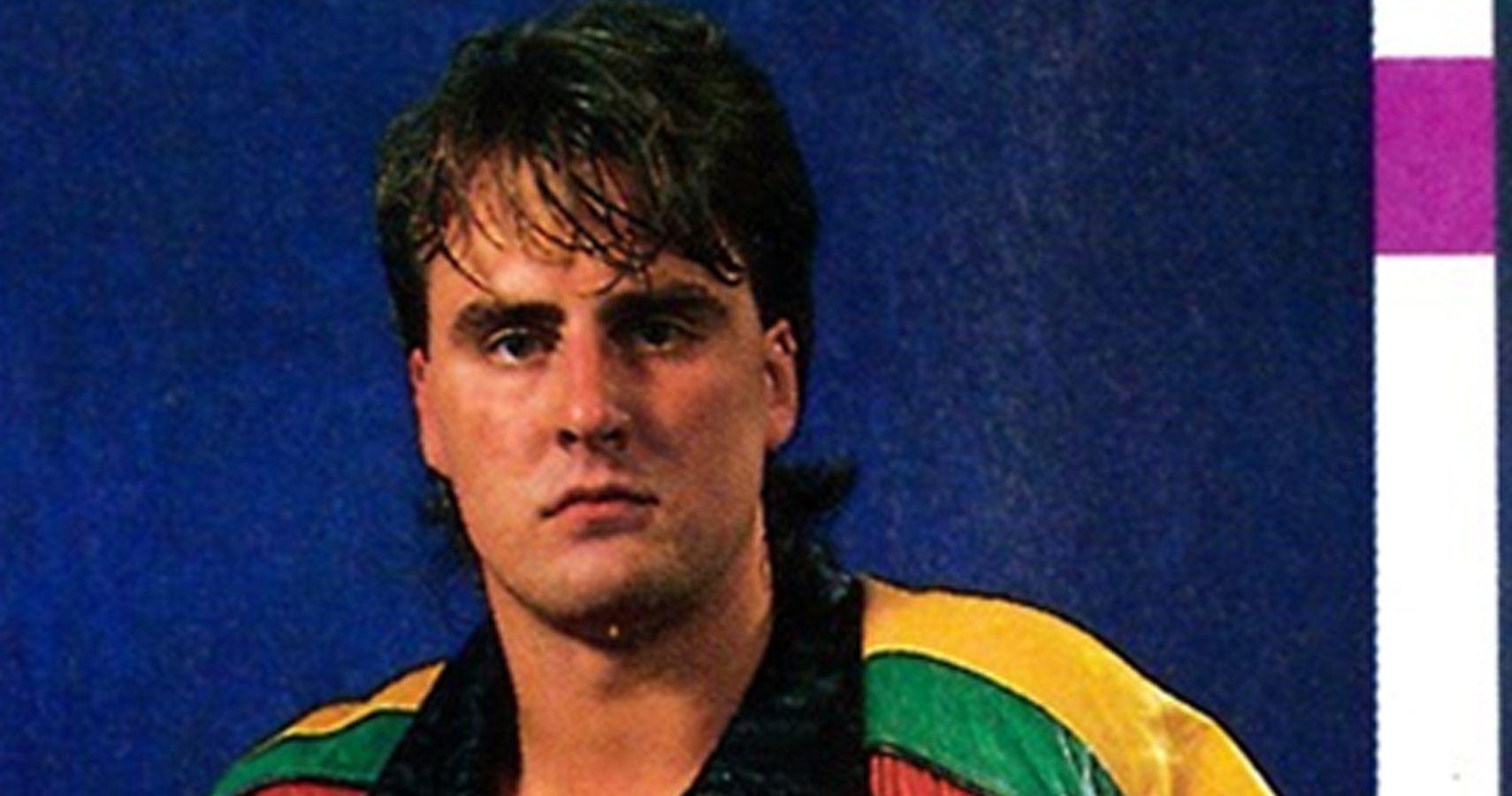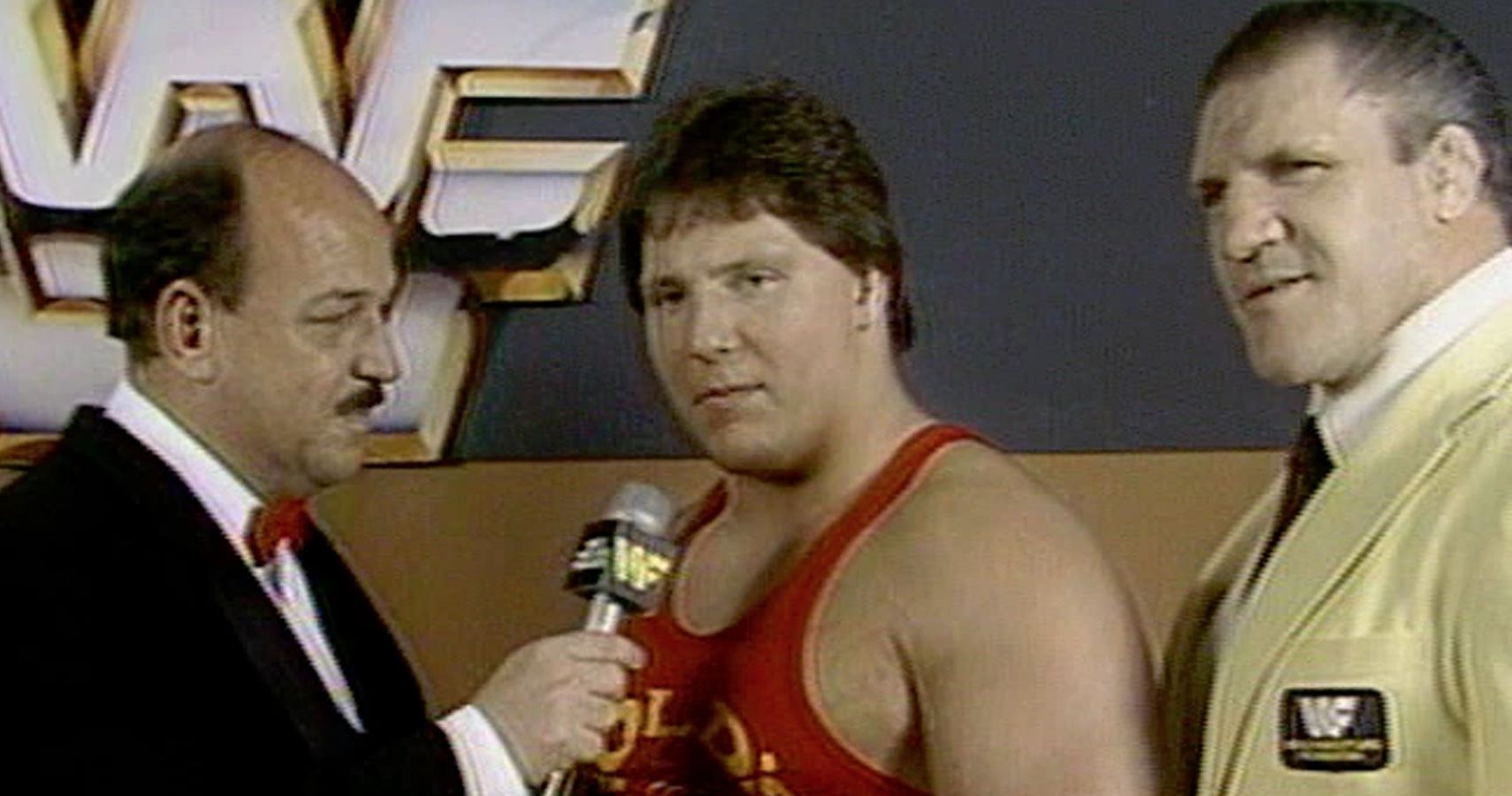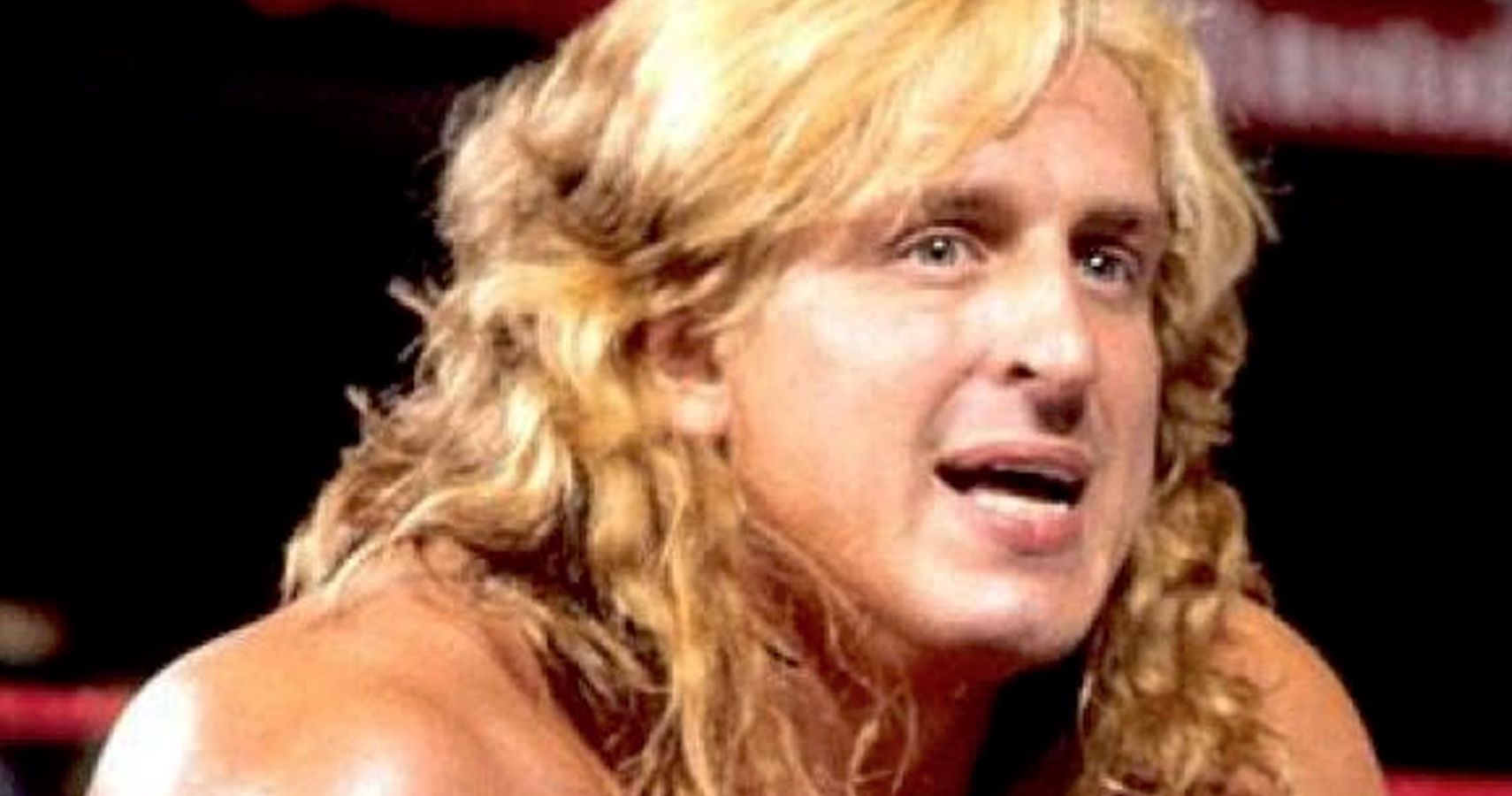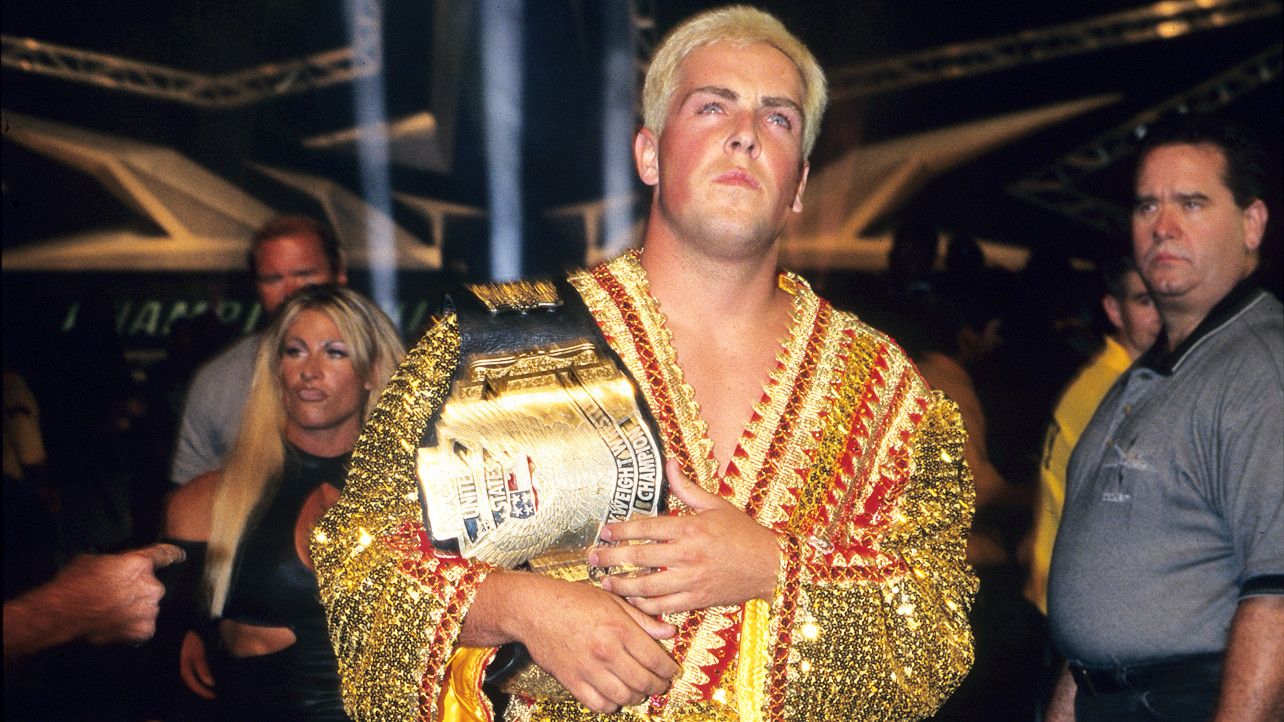With the bizarre storyline involving Kurt Angle and Jason Jordan transpiring on Monday Night Raw at the moment, it looks like WWE is going to be billing the former NXT Tag-Team Champion as a second generation athlete from now on. It’s an outlandish concept for sure, one unlike anything WWE has pulled in a very long time, but you never know how beneficial it could be to Jason Jordan to have a WWE Hall of Famer like Kurt Angle backing up everything you do in the ring.
Given his stagnancy on SmackDown Live while Chad Gable stepped forward as a singles performer, Jordan had essentially nothing to lose in taking on this tricky story direction. That said, simply being a second or third generation WWE Superstar doesn’t guarantee success. You look at guys like The Rock, Bret Hart and Randy Orton and it seems that having wrestling in your blood essentially promises for a lucrative career within the squared circle, but that’s just not the case.
There is a long line of athletes who expected to reign triumphant as a result of their commendable pro wrestling lineage and it just didn’t pan out. Whether that’s down to injury, lack of commitment or simple creative barriers preventing someone from truly coming out of their shell, plenty of second generation wrestlers have come and gone without so much of a fraction of their parent’s fame.
Who are some of these names? Let’s take a look.
15 15. Richie Steamboat
When NXT was starting to really take off as a melting pot for future stars within WWE, one man whom many pegged as the brand’s first big prospect was Richie Steamboat. As the son of Ricky “The Dragon” Steamboat, who was working as a trainer in NXT at the time, there was a natural angle for Richie to take off and create a following for himself as he attempted to live up to his father’s name.
Steamboat had notable performances in NXT, first making it to the semi-finals of the tournament to crown the first ever NXT Champion, and then getting caught in a heated rivalry with Kassius Ohno – who was stepping forward as the brand’s biggest heel. The two went back-and-forth on multiple occasions, but much to Steamboat’s misfortune, he would suffer a career-ending back injury in November 2012 that would require surgery and take him out of in-ring competition for good.
Richie Steamboat’s is one of few names on this list whose failure to live up to his family was completely up to the hands of fate. You can never plan for injury in professional wrestling, but when bad luck strikes, it strikes hard, and on this occasion it could well have hindered a very talented young man from really getting somewhere as a member of the WWE roster.
14 14. Lanny Poffo
As the lesser-known son of Angelo Poffo, who boasted an in-ring career of forty-three years from 1948 to 1991, Lanny Poffo is often forgotten about. Unlike his brother “Macho Man” Randy Savage, Lanny never made it to the big leagues in WWE despite wrestling with the company for nine years.
He was slapped with goofy gimmicks such as “Leaping” Lanny Poffo and The Genius, which put the man out of contention for a championship due to the sheer ridiculousness of their nature. As a result, he had to watch as his brother became a mega star in the same company while he couldn’t do all that much to get himself over. Following his WWE run, Poffo essentially did nothing for five years despite being contracted to WCW, after which he joined the independent circuit.
Poffo’s ability and lengthy spell in the business is nothing to laugh about, but given the impact his brother and father made in the squared circle, Lanny’s forgettable stints in WWE and WCW were never going to be enough for the man to live up to his family name when it came to wrestling.
13 13. Curtis Axel
In 2013, Curtis Axel saw himself repackaged from his old “Michael McGillicutty” days in NXT and The New Nexus, to a brand new persona. Paired with the great Paul Heyman – at a time when the founding father of ECW was still managing Brock Lesnar and CM Punk – Curtis Axel sourced his family tree when picking a new name to take with him into the next chapter of his career.
With this honorific, he represented his father “Mr Perfect” Curt Hennig and his grandfather Larry “The Axe” Hennig, with the intention of creating a legacy worthy of his family lineage. Despite having a win over Triple H during this run, one forgettable Intercontinental Championship reign and some tiresome performances that year would be all it took for the Curtis Axel project to fail.
In the years since, Axel has been dwelling in the undercard with sporadic runs with Rybaxel, The Social Outcasts and a brief – albeit entertaining – run as AxelMania after being rather controversially eliminated from the 2015 Royal Rumble match. As a member of “The Miztourage” on Monday Night Raw right now, Axel hopes to get his career back on the right path to success and finally doing well by the legends that preceded him, but it will undoubtedly be an uphill battle.
12 12. Scott Putski
WWE Hall of Famer, Ivan Putski’s in-ring run from the sixties to the nineties, during which he competed in the WWWF for a very impressive thirteen years, is nothing to turn your nose up at. The man won the WWE World Tag Team Championship alongside Tito Santana, and engaged in some memorable feuds with the likes of Roddy Piper, Sgt. Slaughter, Bruiser Brody and Ivan Koloff.
Which is why it was a shock to see that the man’s son, Scott Putski, who Ivan personally trained, got essentially nothing from his wrestling career. After getting his start in Global Wrestling Federation, Scott wrestled briefly for WWE in 1993, 1994 and 1997, where he could never really find a rhythm and always competed low in the card, later going to WCW for an equally unimportant run in ’98.
He retired in 2003 after a lengthy hiatus and some time on the independent circuit, and returned to the ring ten years later for the NWA. Given his rather inconsistent debut decade, it’s no surprise that Putski finds himself as one of the least impressive second generation wrestlers ever to grace the mat.
11 11. Shawn Stasiak
Despite being used as a transitional champion to put the WWWF Heavyweight Championship back on Bruno Sammartino in 1973, Stan Stasiak defeated Pedro Morales to bring an end to a near-three year championship reign and earn the title for himself for all of nine days.
Regardless of the length, Stasiak cemented himself in the record books as a legend with such an accomplishment, which is far more than can be said of his son Shawn - who trained under Dory Funk Jr. and was signed to a WWE contract in 1998, making his debut the following year as “Meat.”
He started off strong but was soon relegated to the role of a jobber and would eventually be fired in 1999 when he recorded a heated argument between Steve Blackman and Davey Boy Smith without their permission. He soon went to WCW and despite reasonable success including a World Tag Team Championship win with Chuck Palumbo, he had to return to WWE in 2001 when the company purchased WCW. This run played no favor to Stasiak, who requested his release the following year.
Stasiak’s father may not have been champion for long during his prime, but at least the man’s career was hot enough to at least play the role of villain for Bruno Sammartino to reclaim the title. Shawn on the other hand would have been lucky to make it to that level during his time in the ring.
10 10. Sim Snuka
Sim Snuka may only ring a bell to those who recall the greaser duo of Deuce ‘n Domino on SmackDown in 2007, not to mention their roller-skating manager Cherry. When the team split in 2008 and all were released from the company save for Deuce, the former tag-team champion struck out on his own and adopted the surname of his real-life father Jimmy “Superfly” Snuka.
Now known as Sim Snuka, the second generation athlete attempted to utilize his family name in order to get ahead as a member of Monday Night Raw, and there was no better way to do so than by trying to join a faction of second (and third) generation stars just like himself – The Legacy.
Unfortunately for Snuka, the group didn’t take too kindly to him after failing to earn entry into it, and when he tried to exact some revenge, he received a beatdown for his troubles.
Snuka would soon fade away, as would any hope of paving himself a path to fame and fortune akin to his father’s. His final memory as a WWE Superstar would come at WrestleMania XXV, as he posed as a cameraman and failed to catch The Undertaker during a horrifying suicide dive spot against Shawn Michaels, likely driving the final nail into the coffin of Sim Snuka’s brief WWE career.
9 9. Brian Christopher
It may surprise you to know that Brian Christopher, perhaps better known for his time as Grandmaster Sexay as part of Too Cool with Scotty 2 Hotty and Rikishi, is actually a second generation wrestler. His father is legendary WWE Hall of Famer Jerry “The King” Lawler, whom actually pulled some strings to help Christopher make it to the WWE during the Attitude Era.
For some, it may not have been until Christopher’s one-off return in 2011 during Jerry Lawler’s feud with Michael Cole ahead of WrestleMania XXVII that you actually knew these two were related, given that it never felt like it was brought up all that often during his time in the WWE.
The aforementioned pairing with Scotty 2 Hotty – after Rikishi turned heel – was beloved by the WWE audience. They would dance around the ring and essentially make a fool out of themselves, but it got them over and that’s what counts. Christopher threw it all away before long, however, as he was fired from the WWE in 2001 for illegally conveying drugs across the Canada-USA border.
He found reasonable success on the independent circuit, and made sporadic appearances for WWE in 2014, but the damage was done when Christopher broke the law all those years ago. He was never a fantastic wrestler but with a firm backing from his father he could’ve achieved so much more.
8 8. Shaul Guerrero
Shaul Guerrero was signed to a WWE developmental contract in 2010, where she competed first with the FCW brand before it was revamped into the NXT we’ve grown used to today. Although WWE’s developmental scene didn’t boast nearly as many promising women’s wrestlers as it did following NXT’s surge of popularity, the idea of Eddie Guerrero’s daughter following in his footsteps had many people talking, and put quite the spotlight on Shaul – who wrestled under the name Raquel Diaz.
With “Latino Heat” being one of the WWE’s most cherished legends following his tragic death in 2005, the prospect of the man’s legacy being continued by his own flesh and blood was a promising one. Unfortunately, Diaz’s hype fizzled out fairly quickly, as her commitment to the industry was brought into question when she was released not once, but twice in September 2012 and April 2014 after a brief return. It’s been reported that she left WWE due to an eating disorder.
Shaul Guerrero is now married to WWE Superstar Aiden English, but it’s interesting to think about how different things would be within the company’s women’s division today if she hadn’t left.
After all, Sasha Banks has consistently capitalized on Eddie Guerrero’s legacy as a lifelong fan, wearing ring gear inspired by the WWE Hall of Famer at WrestleMania 32 and using his “lying, cheating and stealing” tactics to aid her to becoming Raw Women’s Champion.
Would that have happened if Guerrero’s real-life daughter was still on the scene?
7 7. Jake Carter
Jesse Allen White’s wrestling career was almost as short-lived as his football career. He started out with the goal of becoming a football player, and he played for the University of Oklahoma’s team in 2005, but hip and back injuries would prevent him from taking off in the sport. White’s father, Big Van Vader, then trained him to become a professional wrestler and to follow in his own footsteps.
It wasn’t long before WWE signed him to developmental contract under the name Jake Carter, likely due to the fact that his father is a very well-known name in wrestling. Carter wrestled with the company for a little over two years, joining the FCW roster prior to the transition into NXT and being released about a year afterwards, following a losing effort in a match with Tensai.
Given the extremely tough nature of the WWE touring schedule and its competition, it comes as no surprise that the company wouldn’t pursue Carter as a prospect given the injuries that prevented him from going into football. It’s likely that WWE doctors deemed Carter as an unnecessary risk. Maybe he just wasn’t as good in the ring as the company wouldn’t have hoped either. Whatever the reason, Carter’s WWE tenure was nothing to write home about, and didn’t do Vader’s legacy any favors.
6 6. Manu
We spoke a little before about Legacy, and one of the original members of that group was actually the son of WWE Hall of Famer, Afa Anoa’i – known for his time as one of The Wild Samoans. Afa Anoa’i Jr., who wrestled under the ring name Manu, made his WWE debut at Unforgiven in 2006, teaming with Cody Rhodes and Ted DiBiase Jr. to help Randy Orton. The group became known as The Legacy, but it wouldn’t be long until Manu was ousted from it for losing a match against Matt Hardy.
Alongside Sim Snuka, whom had also been kicked to the curb as a result of his inability to impress, Manu failed to get revenge over The Legacy for exiling him and was released from the WWE shortly thereafter. Randy Orton went on record to say that the reason for Manu’s release had a lot to do with his backstage attitude and the man’s feeling that he didn’t have to pay his dues.
Manu had actually been suspended prior to his debut for violating the Wellness Policy, so that may be a telling tale that he didn’t take the WWE’s rules and regulations seriously. Whatever it was, he didn’t make any impact and the fact that he was kicked out of a group devoted to second generation wrestlers is a good representative for how Manu's career compared to his father’s in the end.
5 5. Erik Watts
Legendary WWE Hall of Famer, “Cowboy” Bill Watts is best known for his no-nonsense approach to promoting for what’s now known as the Universal Wrestling Federation in the Mid-South region of the USA, as well as his tenures as a booker in WCW and WWE.
In 1992, Bill encouraged his son Erik into the world of professional wrestling, personally overseeing his training and pushing him well right out of the starting gate in WCW.
This garnered a few accusations of nepotism in Bill Watts’ direction considering people didn’t see all that much in Erik. When Bill left WCW, Erik took a big dip in the card. Throughout his career, Watts never appeared for that long in a single promotion, with a year or two here and there for WWE, WCW again, TNA and ECW with nowhere really taking too much of a shine to him.
Since 2005, he’s performed exclusively on the independent circuit, and although he does well in his role as an authority figure for Great Championship Wrestling, there’s no denying that Erik Watts failed to hit home as the in-ring talent his father was hoping to create in him.
4 4. Ray Gordy
When you look back to 2007, it’s mind-blowing to think that Festus – then known only as a simple-minded individual who lost his mind whenever the bell rang – would have made it big a decade later over his tag-team partner Jesse – the son of the legendary Fabulous Freebird, Terry Gordy.
Obviously Festus turned out to be the Luke Gallows that made it big in Japan as part of Bullet Club, but at the time, it seemed that luck was on the side of Jesse, whose real name is Ray Gordy.
Gordy was trained by his father in 2000 and began wrestling for several promotions before getting signed by WWE, before making his aforementioned debut in 2007. His run with Festus lasted two years before the team was split and Gordy adopted a thug-wannabe gimmick he’d used a number of times prior to the main roster, and “Slam Master J” lasted less than a year before the man was released from his contract in the WWE’s spring cleaning of 2010.
Ray Gordy would then retire from professional wrestling. Gordy could be seen during the 2016 WWE Hall of Fame induction ceremony as his father was immortalized in the record books as a member of the Fabulous Freebirds. In that moment he had to wonder what his career would have been like if he stuck with the sport after his WWE departure instead of walking away.
3 3. David Sammartino
As the son of the legendary Bruno Sammartino, easily the biggest name in wrestling during the 1960s with a WWWF World Heavyweight Championship reign of almost eight consecutive years, it makes sense that David Sammartino would want to follow in his father’s footsteps.
Much to Bruno’s chagrin, David began training under his father and was signed to the WWE in 1984, where he received a big push and competed in main events. However, it seemed WWE was only interested in featuring David as a ploy to use Bruno Sammartino’s fame to draw large audiences – the more Bruno appeared with his son, the higher David got booked on the card.
After a while, Bruno stopped making appearances because it was clear he was only being used, and David’s push was cut short. Unhappy with his new position as a jobber, David would leave the WWE with a sour taste in his mouth. It was an unfortunate situation to be in – the WWE had no interest in him beyond his namesake, and Bruno had little interest in being used just so his son could wrestle.
If David had attempted to work his way from the bottom up, perhaps things would’ve been different for the second generation athlete, who left wrestling altogether after a failed stint with WCW.
2 2. Barry Orton
When analysing the Orton family lineage, Bob Sr., Bob Jr. and Randy Orton are primarily the only names brought into question. But you may be surprised to hear that WWE’s resident “Apex Predator” actually had an uncle in the wrestling business during the late '70s, '80s and early '90s.
Barry Orton wrestled in a number of promotions including WWE, ICW, WOW, the NWA, the IWF and Stampede Wrestling where he competed as “The Zodiac” out of tribute to his father.
Barry retired in 1992 in search of a career as an actor, but it’s unfortunate that he’s mostly only remembered in the wrestling business for his testimony against Terry Garvin in a sex scandal. Given that Garvin had been accused of sexually harassing young ring boys in the WWE, Orton stepped forward with stories of his personal experiences with Garvin in order to help.
It was because of his appearance on The Phil Donahue Show that Orton’s name was blacklisted in the wrestling world, making it difficult to find work and likely contributing to his decision to pursue a different career path. Although Barry Orton’s wrestling career isn’t nearly as commendable as his brother’s, he still played a helping hand in training Randy Orton, which has gone a long way since “The Viper” is a thirteen time WWE Champion as of this writing.
1 1. David Flair
Given the success of Charlotte over the last three years, as well as the sheer impact that her brother Reid’s death had in 2013, it’s very easy to overlook “The Nature Boy” Ric Flair’s other children – particularly his son David. You may not be aware that the WWE Hall of Famer’s oldest son was a wrestler too, known for competing with WCW in an attempt to follow in his father’s famed footsteps.
Ric wanted his son to carry on his legacy after he retired, and although David wasn’t too interested, he did as he was asked. As one would expect, David Flairs’s career didn’t hold a candle to his father’s, as he toiled in WCW following a brief tag-team run and participated in meaningless feuds.
When WWE purchased WCW, David went to OVW and even made a couple of appearances during The Undertaker’s feud with Ric Flair in 2002, but aside from a short period in TNA and time on the independent circuit, David Flair’s wrestling career has never been worth a fraction of his father’s – or his sister’s for that matter. David may not have been able to preserve the Flair name within the industry, but Charlotte has been able to do far better than anyone could’ve hoped instead.

